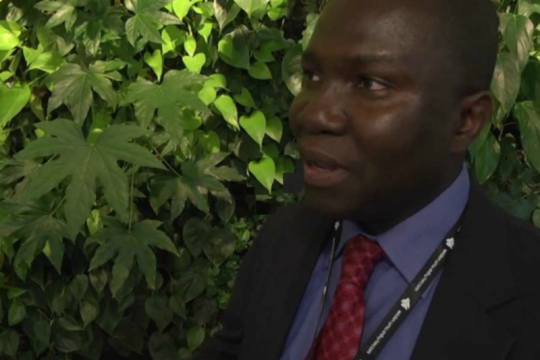In a brief interview with UNU-Wider Wisdom Akpalu, Associate Professor of Economics at SUNY-Farmingdale, NY, shares his view on the effectiveness of development knowledge aid and the impact of the “Gothenburg mafia” on Africa. A maybe misleading expression which relates to Wisdom himself and his former PhD colleagues who studied at the Environmental Economics Unit of the Economics Department at Gothenburg University.
The following is the academic journey of Wisdom Akpalu, providing a broader context to the interview and the importance of knowledge aid.
Wisdom was born in 1968 in the Volta region of Ghana. He is the third of nine siblings. When Wisdom was growing up, Ghana, which in 1957 had become the first African country to gain independence from colonial rule, was rich in several natural resources. However, the resources have been woefully mismanaged with much of the richness either shipped out or unequally distributed. Wisdom’s interest in environmental and sustainable development issues was lit already when he was an undergraduate student at University of Cape Coast (UCC). The university was situated along the Atlantic Ocean so he often went to the beach to study. There he regularly observed small scale fishermen land stocks of juvenile fish caught with small mesh sizes. The lack of sustainable management policies became obvious. Furthermore, he contemplated the sustainability of the management of the nation’s forest stock as large trucks continuously hauled unprocessed timber to the shipping port nearby for export.
In addition, Wisdom wondered why Ghana remained undeveloped in spite of its huge gold deposits. He felt he wasn´t equipped with the skills needed to investigate the issues and provide the necessary answers, but the awareness was born.
In 1994 he graduated and after teaching for a year he was granted a scholarship by the African Economic Research Consortium to study for an MSc degree in economics at Addis Ababa University in Ethiopia. After graduation he returned to become a lecturer at the UCC, where he remained until joining Gothenburg University in 2001 to study for a PhD in Environmental Economics, a program he became aware of in 1998 when the Beijer Institute of Ecological Economics in Stockholm invited him to participate in a workshop in Ghana.
He finished his PhD thesis “Essays on Economics of Natural Resource Management and Experiments” in 2006, and it deals with the very same issues which had caught his attention studying by the beach back at the UCC. Ten years later he was equipped with the experience he had longed for and could start affecting policy making, improving and sharing knowledge of how to perform research.
Wisdom then went to work at the Center for Environmental Economics and Policy in Africa (CEEPA) at University of Pretoria, South Africa, to help build research capacity. Due to family reasons he had to relocate to the USA in 2008 and was hired by the State University of New York (SUNY) – Farmingdale, NY. No matter the geographical location, Wisdom felt the need to continue building capacity in Africa. He made a number of initiatives including setting up and directing a center called Center for Environmental Economics Research & Consultancy (CEERAC) in Ghana. The center aims at promoting policy relevant research as well as providing training in advanced quantitative research methods. Over the past five years Wisdom has visited Ghana every summer to organize the research workshops for lecturers, graduate students, and other professionals. Wisdom also helps supervising a few PhD students in Ghana and South Africa, spreading more knowledge aid.
